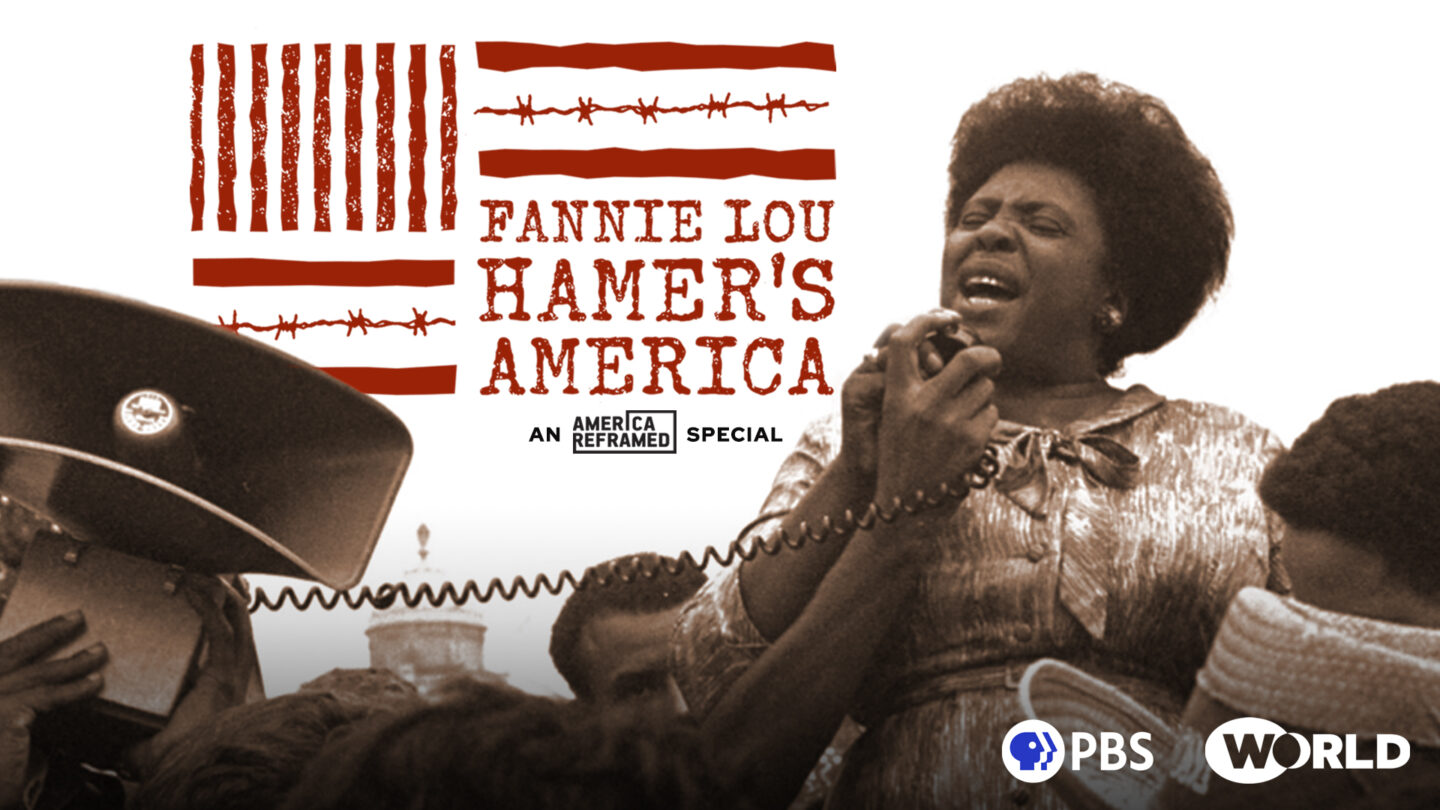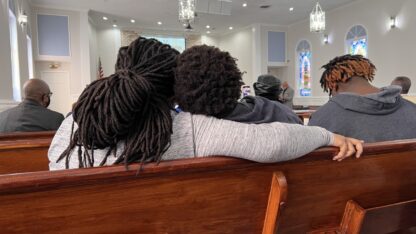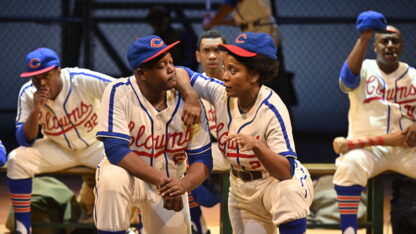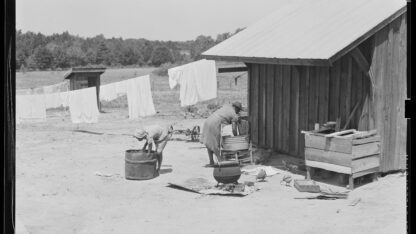“I’m sick and tired of being sick and tired.” “Nobody’s free until everybody’s free.” Those words were spoken by Fannie Lou Hamer, one of the most charismatic figures in the Civil Rights Movement. A new documentary about Hamer will air tonight on PBS stations nationwide, including WABE TV. “Fannie Lou Hamer’s America” is part of the Peabody Award-winning series, “America ReFramed.” Joy Davenport directed the film and joined “City Lights” host Lois Reitzes via Zoom to share the profound courage and inestimable accomplishments of its subject.
Interview highlights:
A champion born out of scarcity and struggle:
“Fannie Lou Hamer’s life was both very normal for a sharecropper at the time and also just incredibly difficult. It was a life of extreme poverty. She was the youngest of 23 children and, at the age of 12, was already working full time in the fields, picking cotton with her family. She got a middle-school education but had to drop out so that she could go and labor with her family just to survive,” said Davenport.
“She, over time, learned that the structure of everything around her was skewed against her very survival, against the survival of her family, her peers, her neighbors. And as she reached adulthood, she just felt if there’s anything she can do to change that structure, that should be her life’s work.”
Fannie Lou and the Student Nonviolent Coordinating Committee:
“She learned a lot of things. Probably the most immediate and regulatory thing was that she did have a constitutional guarantee to vote and that that was something that she and most of her peers always assumed, ‘This is just white person stuff. This is not for us,’ but in fact, it was, and it should be guaranteed by the Constitution.”
“This, to her, changed everything because she could vote out the sheriff that harassed her. She could vote in a school board that taught Black history. She could do any number of things if she could just get that vote,” Davenport said. “So thus began a crusade on her part, or with the folks with SNCC and COFO and CORE to get as many people registered as possible, to develop centers of power where Black people could actually manage their own destinies.”
How Hamer kept going after her 1963 arrest and torture:
“I would like to believe that that courage came from inside, that … she had to continue, because if they kill her here, or they make her stop here, then that sends a message that you can beat us up, and we’ll stop. And she didn’t want that to be the message; she wanted the message to be, ‘If you beat us up, five of us will come next time. And if you beat us five up, 25 of us will come the next time.’ And so she had a quote that she would say, that if she was going to die, then she’d fall 5 feet 4 inches forward for freedom.”
Extraordinary feats in service of Black voting representation:
“[The Mississippi Freedom Democratic Party] was the truest expression of grassroots leadership and political organizing that I am aware of … They had something that they called a ‘freedom ballot,’ where people would sign up for their freedom to vote and cast this freedom ballot. Now, it wasn’t a legal ballot in Mississippi, but the [MFDP] used that as a way to organize people around their rights,” said Davenport. “It took, and it still takes, everybody’s focus in a whole community to do something like this. So it wasn’t only Mrs. Hamer, but she had the charisma and the local knowledge to unite people across generations.”
“Between 1964, which was the biggest push for the freedom registration, the passage of the Voting Rights Act, by 1968, there was a majority. The majority of eligible Black people in Mississippi were registered to vote. It took four years and a federal law to go from zero representation to actual representation.”
The new documentary “Fannie Lou Hamer’s America” airs tonight, Feb. 22, on WABE-TV at 9:00 pm EST and again on Wednesday, Feb. 23 at 3 a.m. More information can be found at www.fannielouhamersamerica.com.









